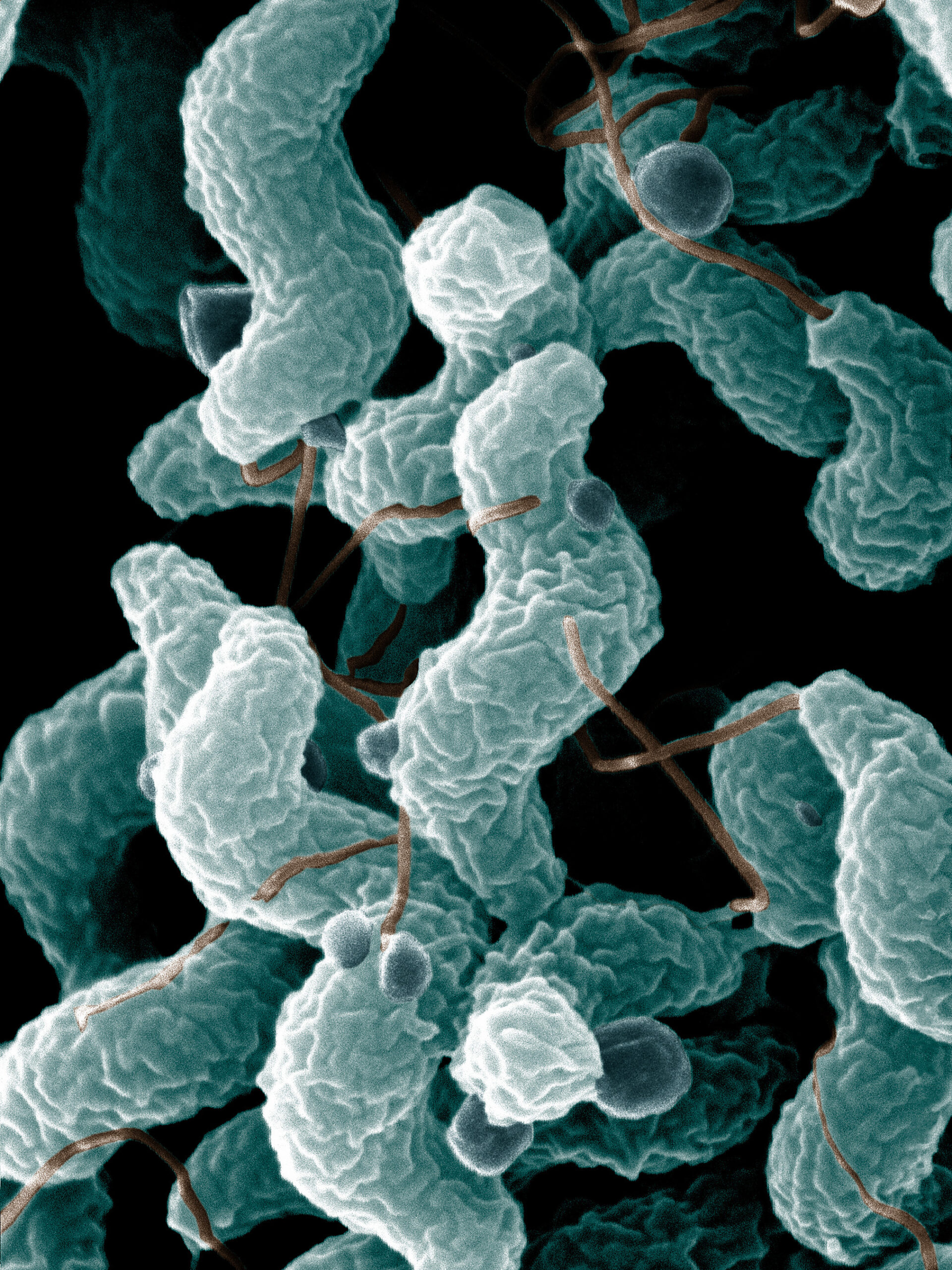Often highly effective at treating bacterial infections, carbapenem antibiotics are used to treat multi-drug resistant bacterial infections. However, a recent case study published in the American Society for Microbiology journal Antimicrobial Agents and Chemotherapy reports that a Campylobacter coli infection in an immunocompromised patient became resistant to meropenem. Over the course of a 3-month monotherapy with meropenem, the patient had recurring bacteremia. The second episode was found to be meropenem resistant.
Fortunately, digestive tract decolonization with a combination of imipenem and gentamicin was effective and the patient recovered. While the effectiveness of carbapenems to treat multi-drug resistant Campylobacter infections has been demonstrated in several studies, breakpoints have not been established by CLSI or EUCAST – only by the Antibiogram Committee of the French Society of Microbiology – which makes it challenging to treat Campylobacter infections with this class of antibiotics[1].

You can read more about this case in the journal article here: https://doi.org/10.1128/aac.00272-23
“The increasing worldwide prevalence of antibiotic resistance among Campylobacter spp., particularly in the species C. coli, is worrisome.1“
As more organisms become resistant to antimicrobial agents, identifying the antimicrobial susceptibility of a particular organism in the lab will become increasingly critical to patient care. Especially when last-line-of-defense drugs like carbapenems can no longer be assumed to work in all cases, testing for AMR can be the determining factor in ensuring patients are treated with the correct medications as quickly as possible.
For this reason, as molecular testing and syndromic testing by multiplex technologies proliferate and help diagnose infectious diarrhea, it is important that laboratories remain proficient in isolating these organisms for antimicrobial testing and characterization. In this case, C. coli was isolated from blood cultures and stool samples.
CMPT offers several PT programs that test the ability of laboratories to isolate and identify Campylobacter species in stool samples. Check our Clinical Bacteriology, Enteric Panel, and our new Gastrointestinal Panel.
For those who would like to brush up on their antimicrobial susceptibility testing knowledge, our partner office POLQM offers a course on antimicrobial testing and interpretation of results. Although registration is closed for this year, we expect to offer it again in early 2025.



